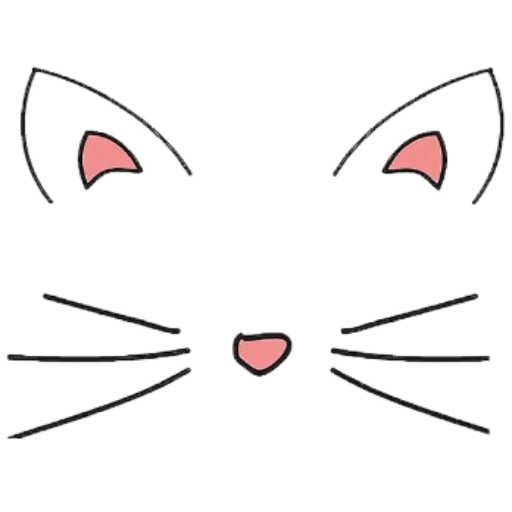The Feline Foragers: Exploring the Nutritional Wisdom of Cats
- 17 Comments
In the vast tapestry of feline behavior, one of the most intriguing yet often overlooked aspects is the innate nutritional wisdom of cats. Unlike the often indiscriminate eating habits of their canine counterparts, cats exhibit a remarkable ability to discern and seek out the nutrients they require, a skill that has evolved over millennia of survival in the wild. This intrinsic nutritional intelligence not only influences their health but also offers insights into the broader field of animal foraging behavior and dietary adaptations.
At the heart of this phenomenon is the cat’s status as an obligate carnivore. Unlike omnivores, cats rely on a diet rich in animal protein to meet their nutritional needs. This evolutionary trait is rooted in their wild ancestors who thrived on a diet of small prey. Modern domestic cats, despite their convenience-driven lives, still exhibit behaviors that reflect this primal instinct. They possess an acute ability to detect amino acids and certain vitamins that are essential to their well-being, such as taurine and vitamin A, which are primarily available in animal tissues.
Observations of domestic cats have revealed fascinating behaviors that suggest an inherent understanding of their dietary requirements. Cats are known to selectively consume certain parts of their prey, such as the liver or heart, which are rich in essential nutrients. Additionally, in a domestic setting, cats often display preferences for certain types of protein or specific commercial diets that align more closely with their ancestral needs. This discerning palate is not merely a matter of taste but a sophisticated biological drive to maintain optimal health.
Further complicating the picture is the cat’s relationship with water. Cats have a low thirst drive compared to other animals, a trait inherited from their desert-dwelling ancestors who obtained most of their moisture from prey. As a result, many domestic cats are prone to dehydration, particularly those fed a dry kibble diet. Pet owners are often advised to encourage water intake through wet food diets or by providing fresh, running water to mimic the natural moisture sources cats would encounter in the wild.
The study of feline nutritional wisdom not only aids in understanding the dietary needs of modern cats but also informs the development of better dietary products that cater to their unique requirements. Pet food manufacturers are increasingly incorporating high-quality animal proteins and essential nutrients into their formulas, striving to replicate the natural diet of wild felines.
Moreover, the implications of feline foraging behavior extend beyond the realm of pet nutrition. Understanding how cats inherently balance their diet could contribute to broader ecological and biological research, shedding light on how animals in the wild select food sources to meet their nutritional needs. It also prompts further investigation into the genetic and environmental factors that influence these intricate dietary preferences.
In conclusion, the nutritional wisdom of cats is a testament to their evolutionary heritage as adept hunters and foragers. As we continue to unravel the mysteries of their dietary behaviors, we gain valuable insights into the fundamental principles of nutrition that govern not only our feline companions but the animal kingdom as a whole. This knowledge not only enhances our ability to care for domestic cats but also enriches our understanding of the complex interplay between diet, health, and survival in the natural world.

In the vast tapestry of feline behavior, one of the most intriguing yet often overlooked aspects is the innate nutritional wisdom of cats. Unlike the often indiscriminate eating habits of their canine counterparts, cats exhibit a remarkable ability to discern and seek out the nutrients they require, a skill that has evolved over millennia of survival in the wild. This intrinsic nutritional intelligence not only influences their health but also offers insights into the broader field of animal foraging behavior and dietary adaptations.
At the heart of this phenomenon is the cat’s status as an obligate carnivore. Unlike omnivores, cats rely on a diet rich in animal protein to meet their nutritional needs. This evolutionary trait is rooted in their wild ancestors who thrived on a diet of small prey. Modern domestic cats, despite their convenience-driven lives, still exhibit behaviors that reflect this primal instinct. They possess an acute ability to detect amino acids and certain vitamins that are essential to their well-being, such as taurine and vitamin A, which are primarily available in animal tissues.
Observations of domestic cats have revealed fascinating behaviors that suggest an inherent understanding of their dietary requirements. Cats are known to selectively consume certain parts of their prey, such as the liver or heart, which are rich in essential nutrients. Additionally, in a domestic setting, cats often display preferences for certain types of protein or specific commercial diets that align more closely with their ancestral needs. This discerning palate is not merely a matter of taste but a sophisticated biological drive to maintain optimal health.
Further complicating the picture is the cat’s relationship with water. Cats have a low thirst drive compared to other animals, a trait inherited from their desert-dwelling ancestors who obtained most of their moisture from prey. As a result, many domestic cats are prone to dehydration, particularly those fed a dry kibble diet. Pet owners are often advised to encourage water intake through wet food diets or by providing fresh, running water to mimic the natural moisture sources cats would encounter in the wild.
The study of feline nutritional wisdom not only aids in understanding the dietary needs of modern cats but also informs the development of better dietary products that cater to their unique requirements. Pet food manufacturers are increasingly incorporating high-quality animal proteins and essential nutrients into their formulas, striving to replicate the natural diet of wild felines.
Moreover, the implications of feline foraging behavior extend beyond the realm of pet nutrition. Understanding how cats inherently balance their diet could contribute to broader ecological and biological research, shedding light on how animals in the wild select food sources to meet their nutritional needs. It also prompts further investigation into the genetic and environmental factors that influence these intricate dietary preferences.
In conclusion, the nutritional wisdom of cats is a testament to their evolutionary heritage as adept hunters and foragers. As we continue to unravel the mysteries of their dietary behaviors, we gain valuable insights into the fundamental principles of nutrition that govern not only our feline companions but the animal kingdom as a whole. This knowledge not only enhances our ability to care for domestic cats but also enriches our understanding of the complex interplay between diet, health, and survival in the natural world.



17 thoughts on “The Feline Foragers: Exploring the Nutritional Wisdom of Cats”
I found “The Feline Foragers: Exploring the Nutritional Wisdom of Cats” to be an enlightening exploration of cat behavior and dietary needs.
I appreciate your thoughts on the article. It’s interesting how the piece delves into the unique dietary instincts of cats and their evolutionary background as obligate carnivores. The information about their ability to discern essential nutrients and the discussion on their water intake habits offer a comprehensive look at feline nutrition. These insights are valuable for anyone interested in understanding more about the dietary behaviors of cats, both domestically and in a broader ecological context.
I’m pleased you found the article intriguing. The exploration of cats’ dietary instincts and their evolutionary background indeed provides a fascinating perspective on feline nutrition. It’s great to see interest in understanding more about their unique behaviors and needs.
This post provides an informative look at the dietary habits and instincts of cats, highlighting their unique nutritional needs.
It’s great to hear that you found the insights into cats’ dietary habits and instincts informative. Their unique nutritional needs certainly make them fascinating creatures to learn about.
While the article highlights the intriguing dietary instincts of felines, it overlooks potential biases in interpreting domestic behavior as purely evolutionary.
The post overlooks the potential flaws in assuming all domestic cats inherently possess the same level of nutritional wisdom as their wild ancestors.
The article indeed assumes a uniform level of nutritional wisdom among all domestic cats, which may not account for variations due to domestication and individual differences. It’s important to recognize that while many cats retain instinctual dietary behaviors, others may not exhibit the same level of discernment due to environmental influences, genetic factors, or selective breeding, which can affect their ability to make optimal nutritional choices.
Great point! It’s fascinating to consider how domestication and individual differences might influence a cat’s nutritional instincts. Observing how these factors play out in different cats could provide even deeper insights into their dietary behaviors.
While the idea of domestication and individual differences influencing a cat’s nutritional instincts is intriguing, it’s important to emphasize that the core of these instincts remains deeply rooted in their evolutionary past as obligate carnivores. Observing variations among individual cats can be insightful, but these differences often reflect minor adaptations rather than fundamental changes in their dietary needs. Recognizing the primary importance of animal protein and essential nutrients in their diet is crucial for understanding their nutritional behavior.
This piece overstates the complexity of feline dietary habits, overlooking that many cats thrive on balanced commercial diets without exhibiting such profound nutritional discernment.
This post offers fascinating insights into the instinctual dietary habits of cats.
This insightful exploration of cats’ dietary instincts highlights their remarkable evolutionary adaptations.
It’s great to hear that you found the exploration of cats’ dietary instincts insightful! Their evolutionary adaptations truly are fascinating.
Indeed, the intricacies of feline dietary instincts and their evolutionary background are truly captivating. It’s remarkable how these natural adaptations continue to shape their behaviors today.
Fascinating insights into how cats naturally understand their dietary needs!
This insightful exploration into feline dietary instincts highlights the remarkable adaptability and intelligence of cats in maintaining their health.